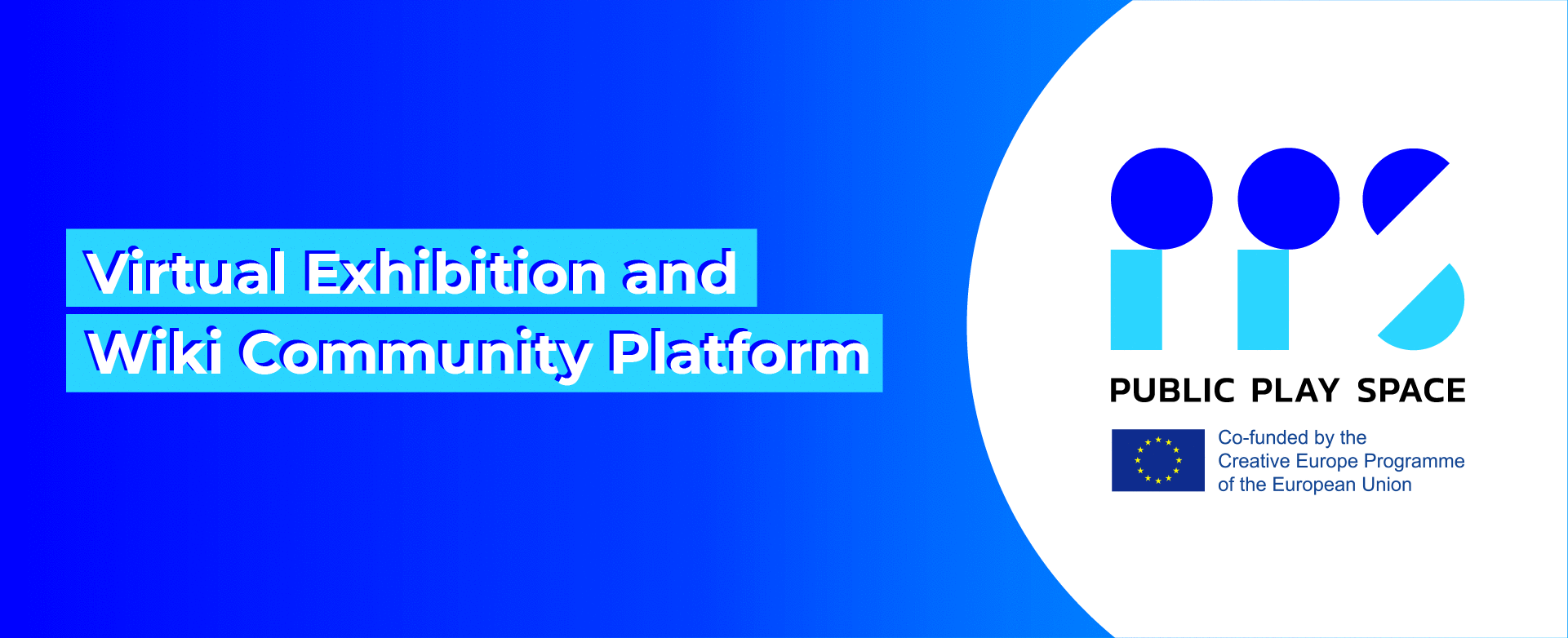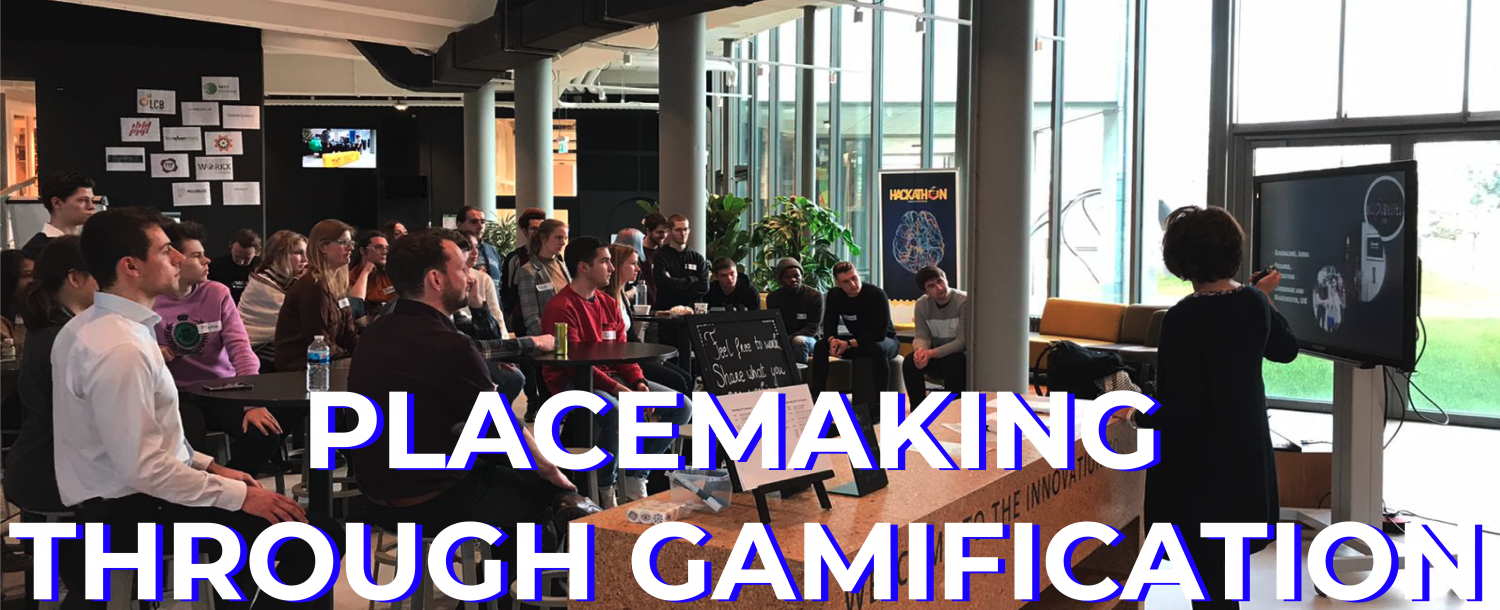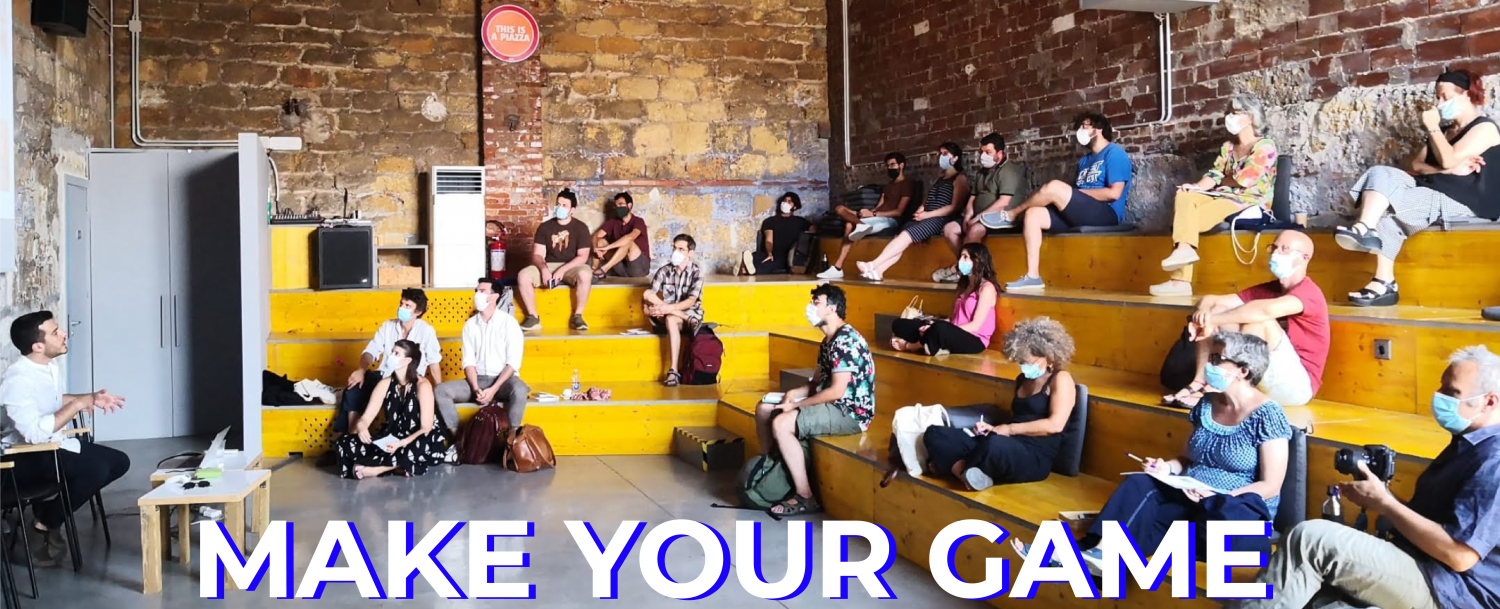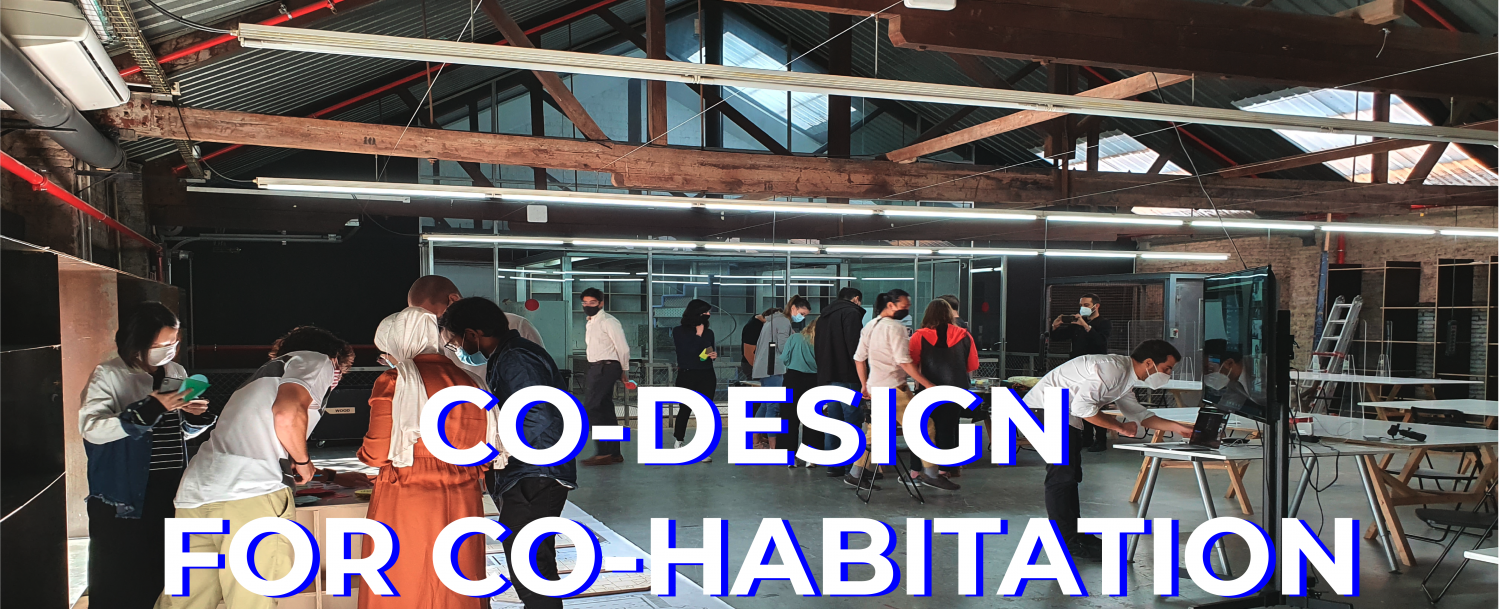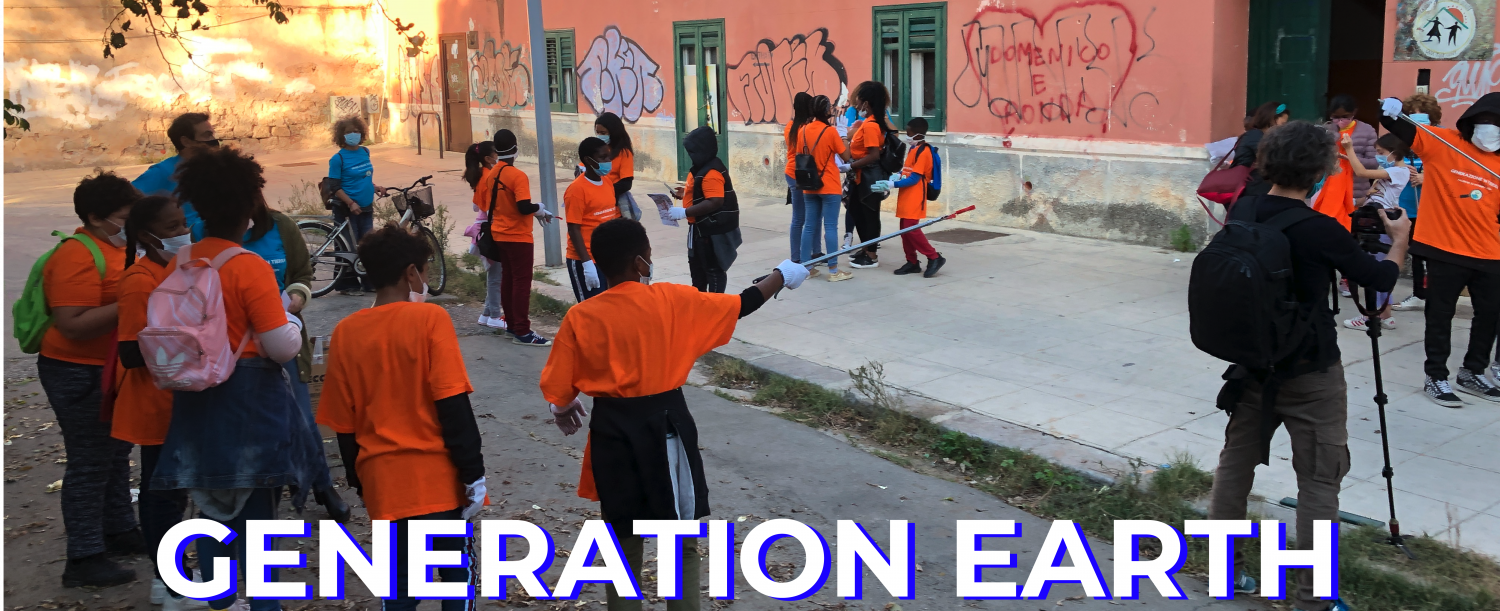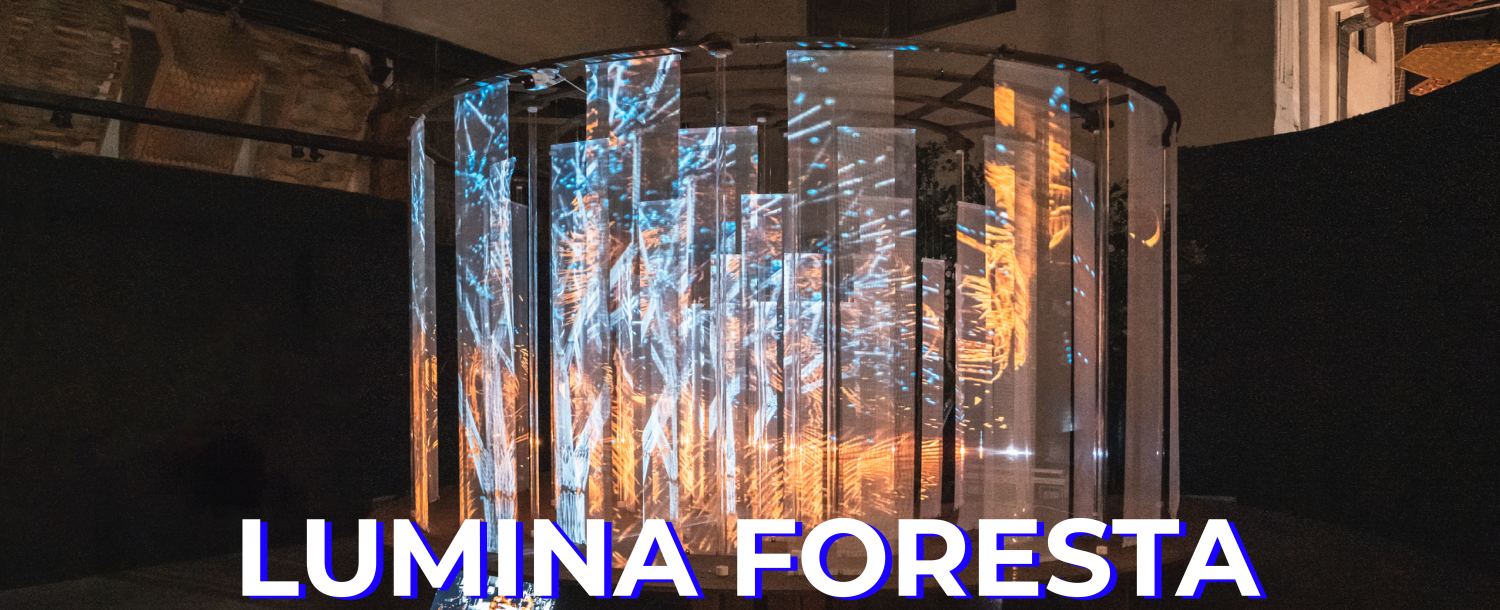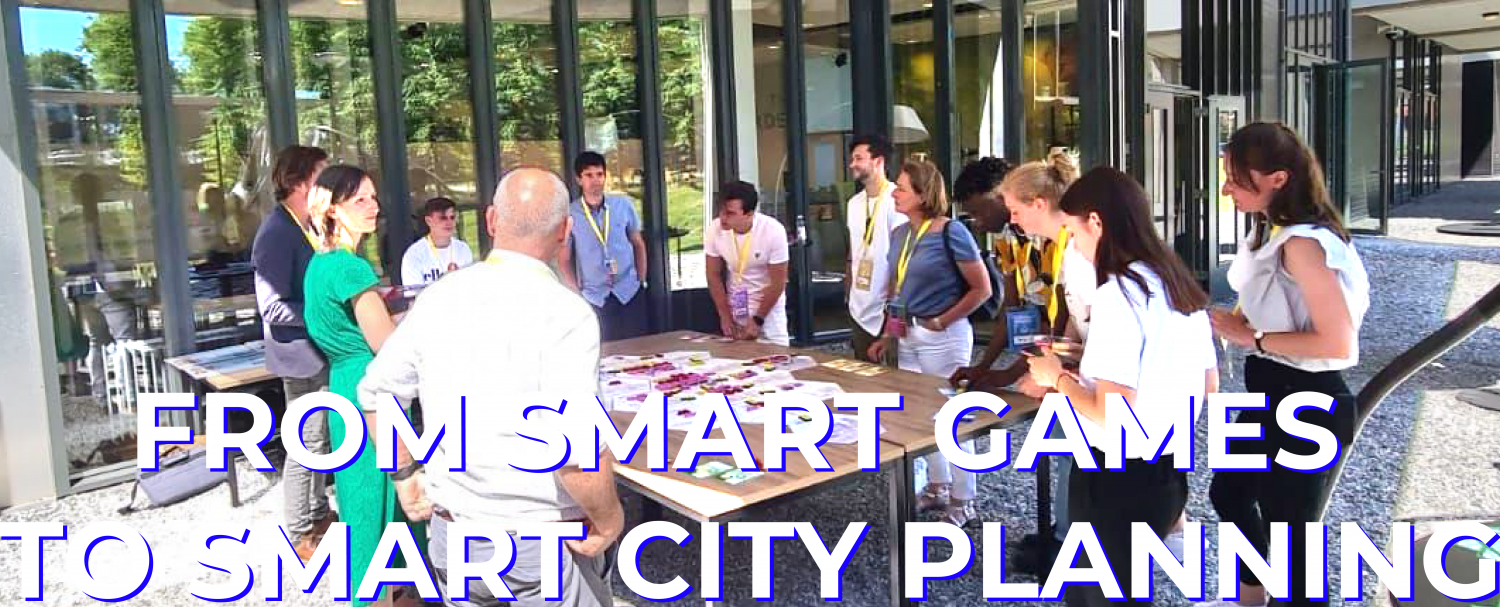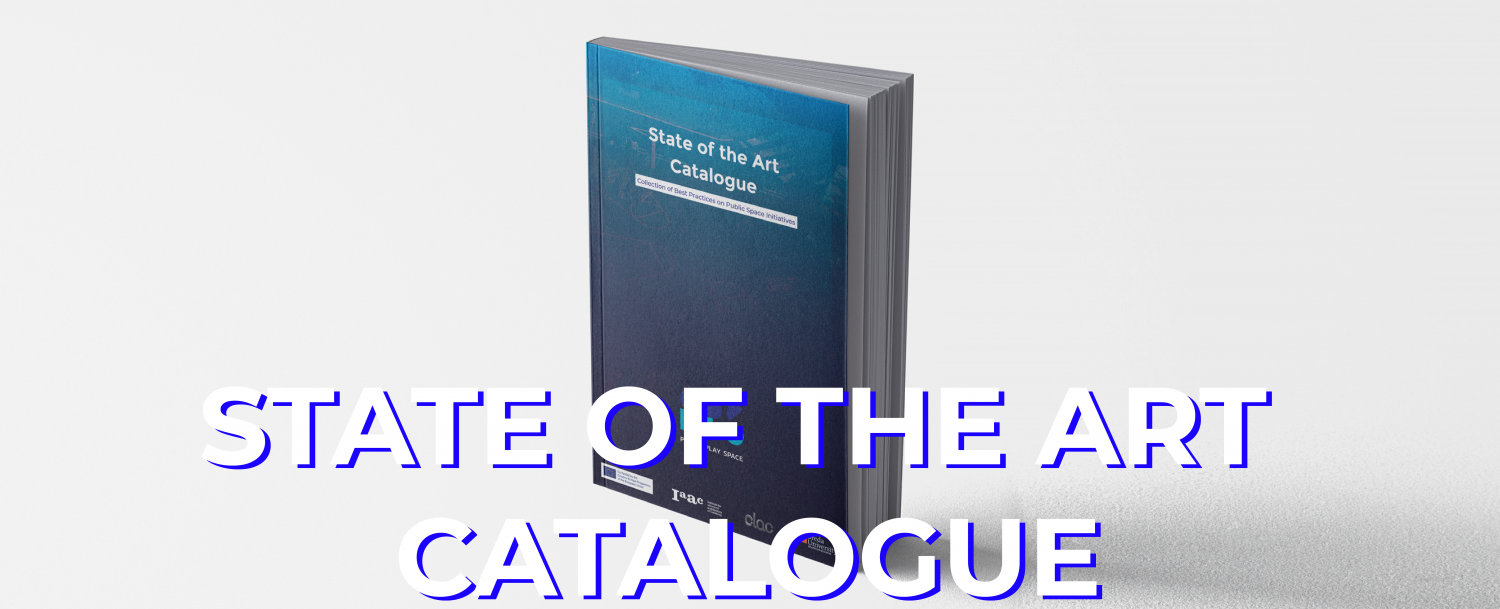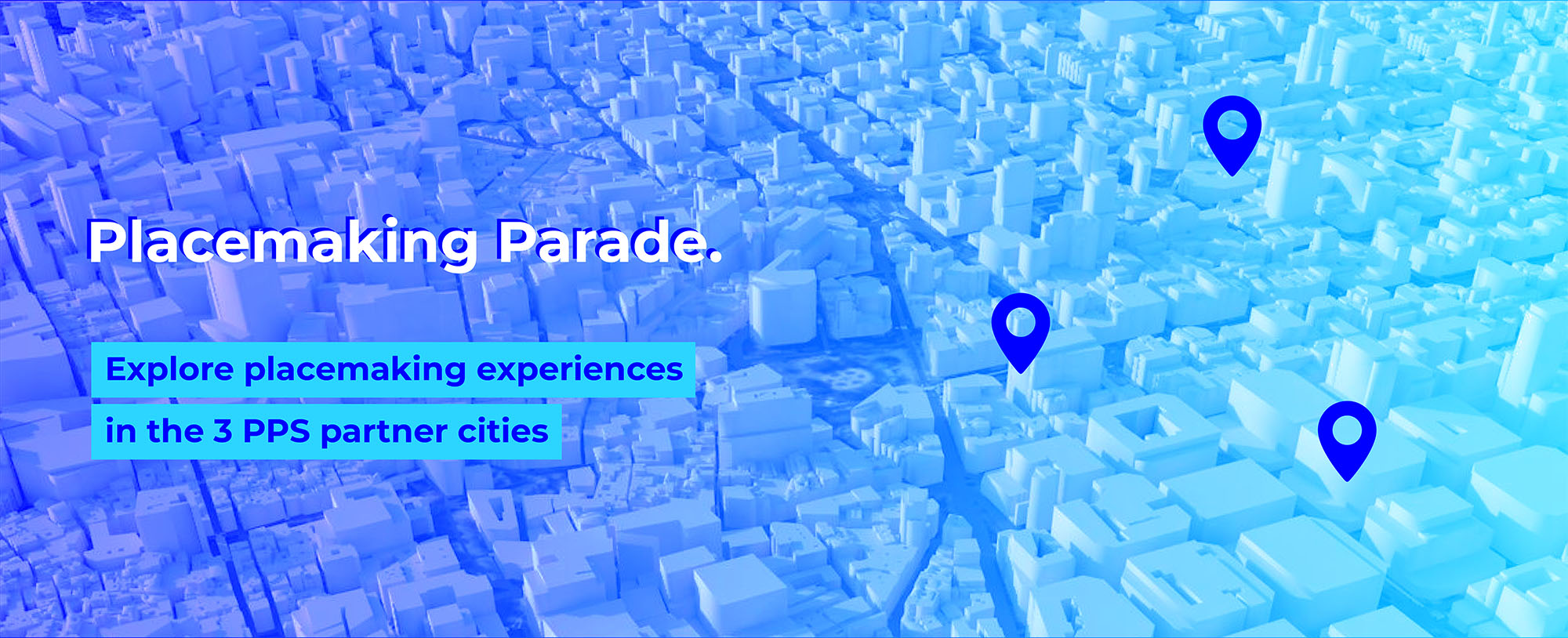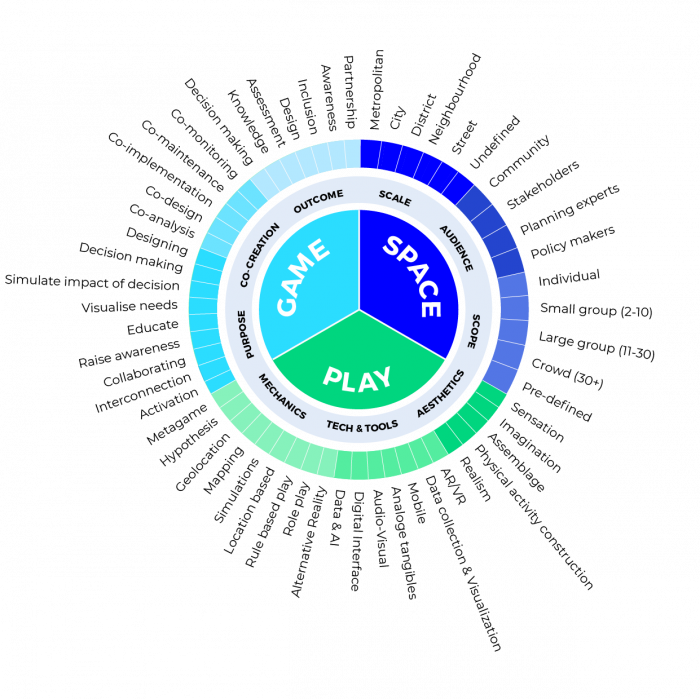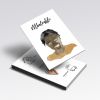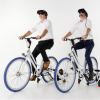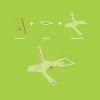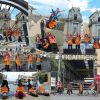| (43 intermediate revisions by 2 users not shown) | |||
| Line 1: | Line 1: | ||
__NOTOC__ | |||
[[Category:ExcludeFromList]] | [[Category:ExcludeFromList]] | ||
[[File:Banner Virtual Exhibition.gif|alt=|center|j]] | |||
<br /> | |||
{| style="text-align:center;" | |||
|- | |||
| | |||
==WELCOME TO THE PPS VIRTUAL EXHIBITION AND WIKI COMMUNITY PLATFORM!== | |||
|}[https://www.publicplayspace.eu/ Public Play Space (PPS)] is a project co-funded by the Creative Europe Programme of the European Union and developed by IAAC, BUas, and CLAC. Through a series of '''strategic actions''', over a period of 2 years, the PPS Project promotes '''innovative and creative practices''' for the '''co-design of inclusive, cohesive, and sustainable public spaces''', through the use o'''f games and digital technologies'''. | |||
The '''<u>Virtual Exhibition</u>''' will guide you through the different actions developed by the project: a '''continuous and multidisciplinary process of exploration of new methodologies and practices''' '''open to different city actors''' such as designers, policymakers, experts and citizens. The content generated during the whole project is displayed, bringing together methods and tools for games, playful interaction and placemaking. | |||
The '''<u>Placemaking Parade</u>''' will let you experience an exploration of '''placemaking experiences''' in the three PPS partner cities: Barcelona, Palermo and Breda. Using satellite maps, you will be able to navigate through different public spaces and explore the different placemaking strategies introduced by local actors | |||
The <u>'''Wiki Community Platform'''</u> is an open source '''knowledge-community on the use of digital technologies and games''' to enhance participatory processes for urban design and placemaking. You are invited to check the numerous projects collected and contribute to the Wiki platform, open to researchers and practitioners willing to publish projects and innovative practices! | |||
{| style="text-align:center;" | |||
|- style="background-color:#447ff5; color:#ffffff;" | |||
!VIRTUAL EXHIBITION | |||
|- | |||
|Participation of citizens in the design of the public space is recognized as fundamental to build inclusive, cohesive and sustainable public space. As local governments grow more and more interested in civic participation, it becomes important to explore available methodologies addressing challenges related with participatory processes. Games have been proposed since the 1960s as means to facilitate participatory processes by enabling cooperative environments to shape and support citizens’ interaction. The change led by Information and Communication technologies opens the debate on how advanced technologies, from video games to Virtual and Augmented Reality can help to open the process of co-creation to new audiences, enhancing citizen participation, both with respect to the design and space usage | |||
|- | |||
|[[File:PPS ACTIONS SCHEME .png|center|1200x1200px|PPS actions ]] | |||
|} | |||
The Public Play Space project is articulated into a series of actions targeted at exploring the process of development and use of innovative technologies and games for public space co-design. | |||
The | *The '''<u>State of the Art Catalogue</u>''' represents the first action, collecting and analysing 30 best-practice case studies, offering a clear panorama of the emerging methodologies and strategies for the public space co-design through games, playful interaction and digital technologies | ||
*The '''<u>Creative & Capacity building workshop</u>''' held in Breda, Palermo and Barcelona, open to students and professionals interested in placemaking, empowering their professional skills in co-creation stages, and building their capacity to further attract diverse audiences by habit / by choice. With a learning-by-doing methodology, workshops were also creative processes, where students developed proposals and projects towards the production of inclusive, cohesive and sustainable public space. | |||
*The '''<u>Open Game Events</u>''', held in Breda, Palermo and Barcelona, which p'''ut in practice the expertise gained''' and the knowledge developed in the project. Each event engaged stakeholders, experts and citizens in a '''process of co-design of the public space''' through games, playful interaction and digital technologies | |||
*The '''<u>PPS International Symposium</u>''', taking place online in July 2021, fostering an academic-political dissemination of the work developed in the project, sharing knowledge and bringing experts and international stakeholders in a common place for discussing about the relationship between gaming and placemaking | |||
*The '''<u>PPS Experience Book</u>,''' to be published in September 2021, building a deep theoretical reflection on Games, Public Space and Digital Technologies, on the basis of the experience and expertise developed in the PPS project | |||
''Click on the first image to start the Exhibition. Alternatively, click directly on the activity of your interest!''<br /> | |||
{| | {| | ||
![[File:Banners | ![[File:Banners Workshops for wiki exhibition-03.png|center|1500x1500px]][[Placemaking through Gamification|OPEN]] | ||
![[File:Banners | ![[File:Banners Workshops for wiki exhibition Mesa de trabajo 1.png|alt=|center|1500x1500px]][https://wiki.publicplayspace.eu/index.php?title=Make_your_Game OPEN] | ||
![[File: | ![[File:WSHOP BCN.png|alt=|center|1500x1500px]][https://wiki.publicplayspace.eu/index.php?title=Co-Design_for_Co-Habitation OPEN] | ||
|- | |- | ||
|[[File:Banners | | | ||
|[[File:Banners | {| | ||
![[File:Banners Workshops for wiki exhibition-07.png|alt=|center|1500x1500px]][[Lumina Foresta|OPEN]] | |||
|} | |||
![[File:Banners Workshops for wiki exhibition-04.png|alt=|center|1500x1500px]][[Lumina Foresta|OPEN]] | |||
| | |||
{| | |||
|- | |- | ||
![[File:Banners Workshops for wiki exhibition-02.png|alt=|center|1500x1500px]][https://wiki.publicplayspace.eu/index.php?title=From_Smart_Games_to_Smart_City_Planning OPEN] | |||
|} | |||
|- | |||
![[File:State of the Art Catalogue TB.png|alt=|center|1500x1500px]][[State of the Art Catalogue|OPEN]] | |||
![[File:State of the Art Catalogue TB.png|alt=|center|1500x1500px]][[State of the Art Catalogue|OPEN]] | |||
![[File:State of the Art Catalogue TB.png|alt=|center|1500x1500px]][[State of the Art Catalogue|OPEN]] | |||
|} | |} | ||
| Line 27: | Line 62: | ||
{| style="text-align:center;" | {| style="text-align:center;" | ||
|- style="background-color:#447ff5; color:#ffffff;" | |- style="background-color:#447ff5; color:#ffffff;" | ||
! | !PLACEMAKING PARADE | ||
|- | |- | ||
| | |The Parade will let you live an exploration of placemaking experiences in the three PPS partner cities: Barcelona, Palermo and Breda. Using satellite maps, you will be able to navigate through different public spaces and explore the different placemaking strategies introduced by local actors. | ||
|}<br />[[File: | |}<br /> | ||
==All Projects== | [[File:PlacemakingParade.jpg|alt=|center]] | ||
<br /> | |||
{| style="text-align:center;" | |||
|- style="background-color:#447ff5; color:#ffffff;" | |||
!WIKI COMMUNITY PLATFORM | |||
|- | |||
!The PPS Wiki Community Platform is an '''open source knowledge-community''' on the use of digital technologies and games to enhance participatory processes for urban design and placemaking. | |||
The objective of this PPS Wiki Community Platform is to allow a wider dissemination of the best practices in this field and to facilitate knowledge sharing and the interaction among key stakeholders. The first 30 projects uploaded in this PPS Community Platform are the result of an Open Call of Public Play Space Initiatives launched in December 2019 and published in the State of the Art Catalogue, and of a competitive desk review selection. | |||
|}<br /> | |||
====Methodology==== | |||
The projects are analysed and described using an innovative framework, articulated into 3 concentric levels of analysis and categorisation. This analytical approach allows a deeper understanding of projects that shows a high level of complexity and sophistication, enabling the reader to extract learnings on the different impacts and strategies. | |||
At the same time, this categorization will enable the reader to navigate the project according to different features, actions, and properties that characterize them. | |||
{| | |||
![[File:Categories Graphic.png|center|700x700px|alt=]] | |||
|}The first level of analysis describes each project based on the three categories of ''Space, Game, and Play''. | |||
*''Space'' Represents the spatial scale in which the project is executed and its audience. | |||
*''Game'' Represents the project’s main purpose. | |||
*''Play'' Represents the instruments used in the best practices. | |||
Three sub-categories are identified for each one of them, and they are finally further described in a third level of analysis. For further info [[Categorization Framework|click here]]. | |||
<br /><br /> | |||
====All Projects==== | |||
<dynamicpagelist> | <dynamicpagelist> | ||
category | category = Project | ||
notcategory = ExcludeFromList | notcategory = ExcludeFromList | ||
galleryshowfilesize= | imagewidth=100 | ||
galleryshowfilename= | galleryshowfilesize=false | ||
galleryshowfilename=true | |||
mode=gallery | mode=gallery | ||
order = ascending | order = ascending | ||
| Line 43: | Line 103: | ||
suppresserrors = true | suppresserrors = true | ||
</dynamicpagelist> | </dynamicpagelist> | ||
< | <br /> | ||
[[File:Eu logo Creative Europe.jpg|center|442x442px]] | [[File:Eu logo Creative Europe.jpg|center|442x442px]] | ||
Latest revision as of 15:23, 9 July 2021
WELCOME TO THE PPS VIRTUAL EXHIBITION AND WIKI COMMUNITY PLATFORM! |
Public Play Space (PPS) is a project co-funded by the Creative Europe Programme of the European Union and developed by IAAC, BUas, and CLAC. Through a series of strategic actions, over a period of 2 years, the PPS Project promotes innovative and creative practices for the co-design of inclusive, cohesive, and sustainable public spaces, through the use of games and digital technologies.
The Virtual Exhibition will guide you through the different actions developed by the project: a continuous and multidisciplinary process of exploration of new methodologies and practices open to different city actors such as designers, policymakers, experts and citizens. The content generated during the whole project is displayed, bringing together methods and tools for games, playful interaction and placemaking.
The Placemaking Parade will let you experience an exploration of placemaking experiences in the three PPS partner cities: Barcelona, Palermo and Breda. Using satellite maps, you will be able to navigate through different public spaces and explore the different placemaking strategies introduced by local actors
The Wiki Community Platform is an open source knowledge-community on the use of digital technologies and games to enhance participatory processes for urban design and placemaking. You are invited to check the numerous projects collected and contribute to the Wiki platform, open to researchers and practitioners willing to publish projects and innovative practices!
| VIRTUAL EXHIBITION |
|---|
| Participation of citizens in the design of the public space is recognized as fundamental to build inclusive, cohesive and sustainable public space. As local governments grow more and more interested in civic participation, it becomes important to explore available methodologies addressing challenges related with participatory processes. Games have been proposed since the 1960s as means to facilitate participatory processes by enabling cooperative environments to shape and support citizens’ interaction. The change led by Information and Communication technologies opens the debate on how advanced technologies, from video games to Virtual and Augmented Reality can help to open the process of co-creation to new audiences, enhancing citizen participation, both with respect to the design and space usage |
The Public Play Space project is articulated into a series of actions targeted at exploring the process of development and use of innovative technologies and games for public space co-design.
- The State of the Art Catalogue represents the first action, collecting and analysing 30 best-practice case studies, offering a clear panorama of the emerging methodologies and strategies for the public space co-design through games, playful interaction and digital technologies
- The Creative & Capacity building workshop held in Breda, Palermo and Barcelona, open to students and professionals interested in placemaking, empowering their professional skills in co-creation stages, and building their capacity to further attract diverse audiences by habit / by choice. With a learning-by-doing methodology, workshops were also creative processes, where students developed proposals and projects towards the production of inclusive, cohesive and sustainable public space.
- The Open Game Events, held in Breda, Palermo and Barcelona, which put in practice the expertise gained and the knowledge developed in the project. Each event engaged stakeholders, experts and citizens in a process of co-design of the public space through games, playful interaction and digital technologies
- The PPS International Symposium, taking place online in July 2021, fostering an academic-political dissemination of the work developed in the project, sharing knowledge and bringing experts and international stakeholders in a common place for discussing about the relationship between gaming and placemaking
- The PPS Experience Book, to be published in September 2021, building a deep theoretical reflection on Games, Public Space and Digital Technologies, on the basis of the experience and expertise developed in the PPS project
Click on the first image to start the Exhibition. Alternatively, click directly on the activity of your interest!
| OPEN | OPEN | OPEN | ||
|---|---|---|---|---|
|
OPEN |
| ||
| OPEN | OPEN | OPEN |
| PLACEMAKING PARADE |
|---|
| The Parade will let you live an exploration of placemaking experiences in the three PPS partner cities: Barcelona, Palermo and Breda. Using satellite maps, you will be able to navigate through different public spaces and explore the different placemaking strategies introduced by local actors. |
| WIKI COMMUNITY PLATFORM |
|---|
| The PPS Wiki Community Platform is an open source knowledge-community on the use of digital technologies and games to enhance participatory processes for urban design and placemaking.
The objective of this PPS Wiki Community Platform is to allow a wider dissemination of the best practices in this field and to facilitate knowledge sharing and the interaction among key stakeholders. The first 30 projects uploaded in this PPS Community Platform are the result of an Open Call of Public Play Space Initiatives launched in December 2019 and published in the State of the Art Catalogue, and of a competitive desk review selection. |
Methodology
The projects are analysed and described using an innovative framework, articulated into 3 concentric levels of analysis and categorisation. This analytical approach allows a deeper understanding of projects that shows a high level of complexity and sophistication, enabling the reader to extract learnings on the different impacts and strategies.
At the same time, this categorization will enable the reader to navigate the project according to different features, actions, and properties that characterize them.
The first level of analysis describes each project based on the three categories of Space, Game, and Play.
- Space Represents the spatial scale in which the project is executed and its audience.
- Game Represents the project’s main purpose.
- Play Represents the instruments used in the best practices.
Three sub-categories are identified for each one of them, and they are finally further described in a third level of analysis. For further info click here.
All Projects
AR:ticipate 1,439 × 889
AudiovisualArchive and EmotionalMap 600 × 525
Back Story 355 × 355
Being There 593 × 333
Cinema Lliure 1,024 × 683
Clean Games 1,280 × 850
Climate game 1,920 × 1,040
Co-Design for Co-Habitation 4,032 × 2,268
- CO-MIDA
CO-MIDA File missing
Collective intelligence in city design 1,200 × 670
Col·lectiu Superilla Poblenou 1,424 × 2,015
Contrainer with an R 1,439 × 889
Corporate growth game 794 × 447
CREDO 655 × 452
CycleSPEX 300 × 300
Djs pel Canvi 1,200 × 760
From Smart Games to Smart City Planning 1,920 × 1,080
G.E.A.R - enjoy the unseen 1,439 × 889
Generation Earth 4,032 × 3,024
Guerrilla Gardening Palermo 1,439 × 889
Guilt 4,272 × 2,848
Habla 768 × 512
Hello Lamp Post 2,667 × 1,667
IAM PANEL 1,920 × 1,080
Kreyon city 1,024 × 684
L'appar(ten)enza inganna 960 × 720
Le Fanu Play and Skate Park 1,500 × 800
Lumina Foresta 6,000 × 4,000
Make your Game 1,280 × 960
Mediterraneo Square 621 × 438
METROGAME 780 × 540
Mobility urban values 1,920 × 1,280
My Street ABC 1,500 × 1,061
Online / on-site 1,584 × 1,224
- Placemaking Facilitation Game
Placemaking Facilitation Game File missing
Placemaking through Gamification 1,730 × 1,080
- Play the Koepel
Play the Koepel File missing
Playtime 2,156 × 2,156
PobleJoc 730 × 486
QurbanCraft 3,509 × 2,481
Raiders of the lost water 1,000 × 1,000
RE:CLAIM 400 × 300
Redesire 1,200 × 709
Rethinking Urban Design in the digital era 1,783 × 1,261
Saint Rosalia Gardners 1,075 × 802
STAIN 480 × 300
State of the Art Catalogue 2,000 × 1,097
Superlupa 768 × 638
- The Bike pitstop
The Bike pitstop File missing
The civic horse 960 × 1,326
The great palermo 1,024 × 768
The innovation game 4,608 × 2,240
The Smart City Hospitality 274 × 246
The Urban Future 1,065 × 529
Un sacco di Palermo 3,984 × 2,656
Urban Living Lab Playground Game 2,048 × 1,367
Urban Poem 2,576 × 1,932
VEUS 730 × 496
Videogame urbanism 1,920 × 1,080
Add your own project
Do you have a project bound to Public Play Spaces, and do you want to add this project to the catalogue of pages on this community site, please Click Here to learn how to create your own page on this site.
